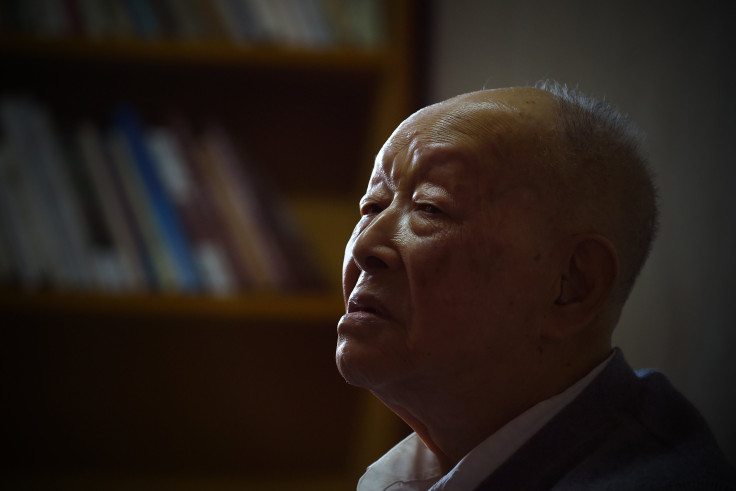Zhou Youguang Birthday: 'Father Of Pinyin' Turns 109, Still Fighting For Democracy

Zhou Youguang, one of China's oldest champions for democracy, turned 109 on Tuesday. The inventor of the Pinyin writing system that revolutionized the teaching of Chinese used the occasion to reiterate his outspoken support for democracy, which has resulted in many of his works being censored, despite his contribution to Chinese language instruction and linguistics, from the very people who probably learned Chinese because of his invention.
"After 30 years of economic reform, China still needs to take the path of democracy," Zhou told AFP. "It's the only path. I have always believed that."
Zhou is often credited as the “father of Pinyin,” a system for Romanizing Chinese words using the Western alphabet. Zhou was tasked with creating a pronunciation guide for the Chinese language in the 1950s to help increase literacy. His system saw literacy rates jump from around 20 percent in the 1950s to over 90 percent today, as schools all across China use Pinyin to aid Chinese instruction.
Born Zhou Yaoping, and later adopting the pen-name Youguang, he was born in an era when there was still a Qing Dynasty emperor in China and Theodore Roosevelt was president of the United States. Zhou studied in China’s first Western-style university, St. John’s in Shanghai, where he studied economics and linguistics. He eventually moved to New York to work as a banker on Wall Street and had several lengthy chats with Albert Einstein, according to the New York Times.
The Pinyin system, which took three years for Zhou and his colleagues to devise, was so useful that even international learners adopted it, and now mobile phones and computers regularly use it for Chinese text input. "In the era of mobile phones and globalization, we use Pinyin to communicate with the world. Pinyin is like a kind of 'Open sesame,' opening up the doors," Zhou told NPR.
He was persecuted as an intellectual by Mao Zedong’s Cultural Revolution from 1966. He was sent to work in a labor camp in Ningxia for more than two years, away from his wife and son, according to BBC. "I had never slept on an earth bed before," he wrote of the experience in his 2012 memorial. "When you encounter difficulties, you need to be optimistic. The pessimists tend to die."
While Zhou’s linguistic contributions have been lauded by state media Xinhua on his birthday this year, his inclinations toward democracy have been downplayed. “(Zhou’s) concerns after retirement are of our society’s future, of which he is optimistic,” wrote Beijing Evening News editor Xie Xizhang, adding that Zhou was a fearless man with his own ideals. “And he believes that freedom and democracy is an inevitable trend we’re all headed toward."
Since Zhou's retirement more than two decades ago, he has written dozens of books arguing that the economic reforms ushered in by Mao’s successor Deng Xiaoping need to be accompanied by political change, which the Chinese government resists. "Chinese people becoming rich isn't important," he said, according to AFP. "Human progress is ultimately progress towards democracy."
At 109, Zhou’s health is waning and he sleeps a lot, but he is still a voracious reader, according to AFP. Zhou’s son Zhou Xiaoping monitors online reaction to his father's blog posts, and has noted that any praise on his father’s blog posts on his blog the Centenarian Scholar is quickly censored, leaving behind only the criticisms.
Zhou’s latest book due next month ran into some snags with the censors who demanded that references to anti-intellectual movements from Mao’s “Great Leap Forward” – a social and economic reform that caused the Great Chinese Famine – be purged. “I don't think it's a problem of individuals," Zhou told AFP. "It's a problem with the system. We don't have freedom of speech in China."
© Copyright IBTimes 2025. All rights reserved.






















